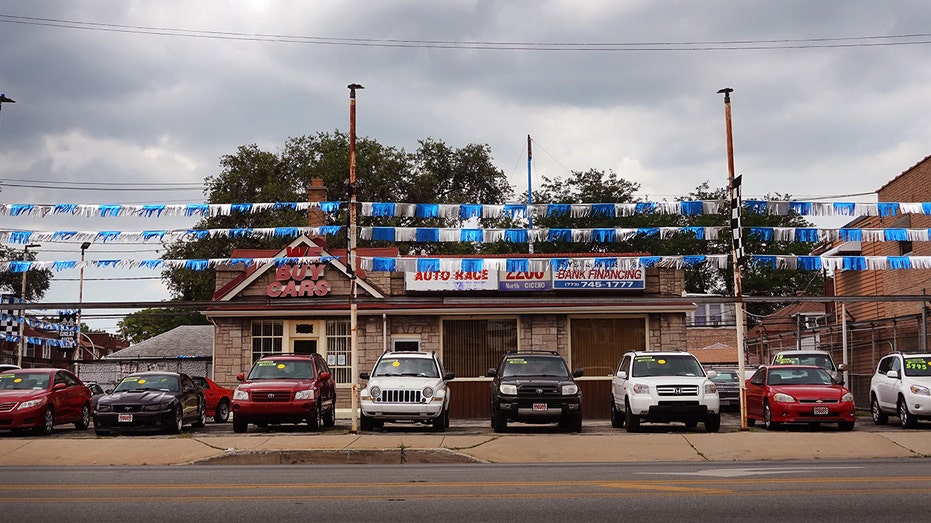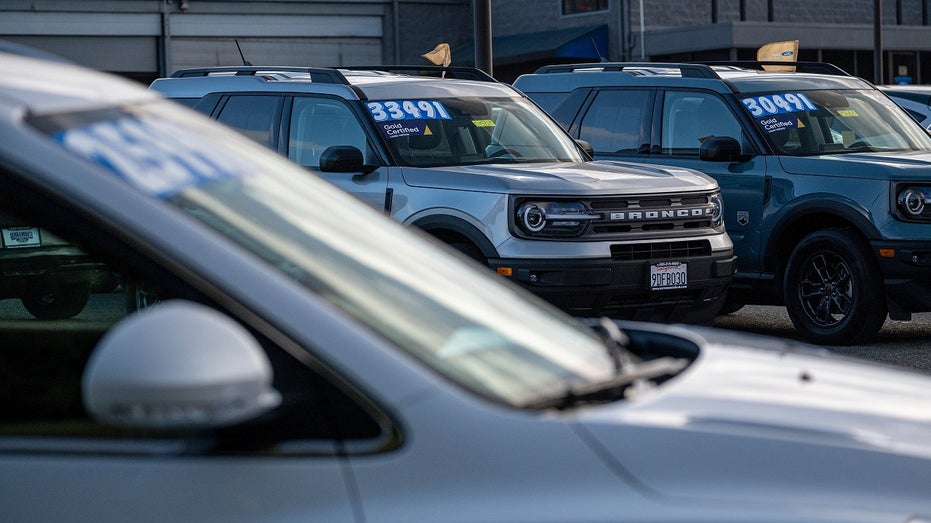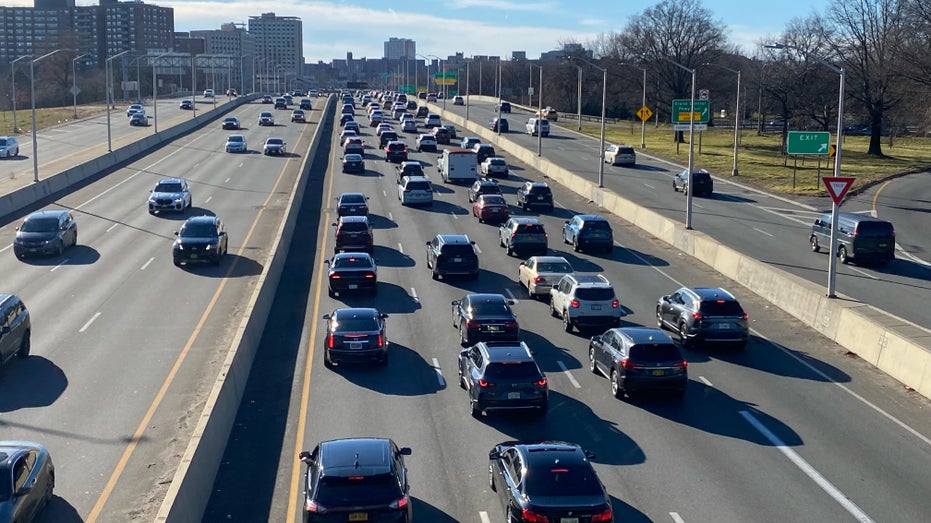Car affordability concerns won’t go away anytime soon, data shows
Consumers could be in for more sticker shock
Auto loan rates climb to highest level since 2010
FOX Business’ Jeff Flock reports on the latest news emerging from the auto industry as data reveals insurance prices have surged year-over-year.
The cost of owning a vehicle in the U.S. has soared over the past few years, and data indicates Americans are likely to be hit with even more sticker shock.
A recent report from auto shopping guide Edmunds points to a notable disconnect between what car buyers plan to spend on their next vehicle versus the average prices for new and used vehicles on dealership lots today.

New data from Edmunds shows there is a disconnect between what consumers expect to pay for a new vehicle and the average sticker price today. (Scott Olson/Getty Images / Getty Images)
Edmunds found that 73% of consumers report that they have held off purchasing their next vehicle because of elevated prices, which have surged since the pandemic due to supply chain issues and low inventory.
Nearly half of new car shoppers (48%) surveyed in the study said they would like to spend $35,000 or less on their next vehicle, and 14% said they’d like to spend $20,000 or less.
HOW DO CONSUMER PRICES COMPARE IN THE BIDEN ERA WITH THE TRUMP ERA 4 YEARS AGO?
However, Edmunds data shows the average transaction price for a new vehicle was $47,716 in July, and there were nearly zero new auto transactions under the $20,000 mark.
Prospective car buyers can also expect an unpleasant surprise in financing for their next ride.

Data from Edmunds indicates prospective car buyers might get sticker shock both from price tags and interest rates. (David Paul Morris/Bloomberg via Getty Images / Getty Images)
The report found three out of four used car shoppers are targeting an interest rate between 0 and 5%, but six out of 10 car buyers who financed a used vehicle purchase in July ended up with an interest rate between 6% and 11%.
Insuring a vehicle is set to climb, too. A report released by Insurify last month found auto insurance premiums rose 15% in the first half of 2024, and the company projects the increase will reach 22% on the year.
INFLATION HAS BEEN COMING DOWN BUT PRICES ARE STILL ELEVATED: GARY KALTBAUM
It appears most consumers know they will have to prepare to pay more for a vehicle, with 54% of car shoppers telling Edmunds they plan on working more hours or taking on a new job to afford their next vehicle purchase. But the higher costs might be more than many had bargained for.

Traffic on the Long Island Expressway near Lefrak City, Queens, New York. (Lindsey Nicholson/UCG/Universal Images Group via Getty Images)
More Americans are already having more difficulty making their car payments this year.
GET FOX BUSINESS ON THE GO BY CLICKING HERE
A recent study by Cox Automotive found the volume of repossessed vehicles at Manheim auctions, the largest wholesale marketplace, is up 23% year over year through the first half of 2024. They are also up 14% compared with the same period in 2019, according to the data.





















